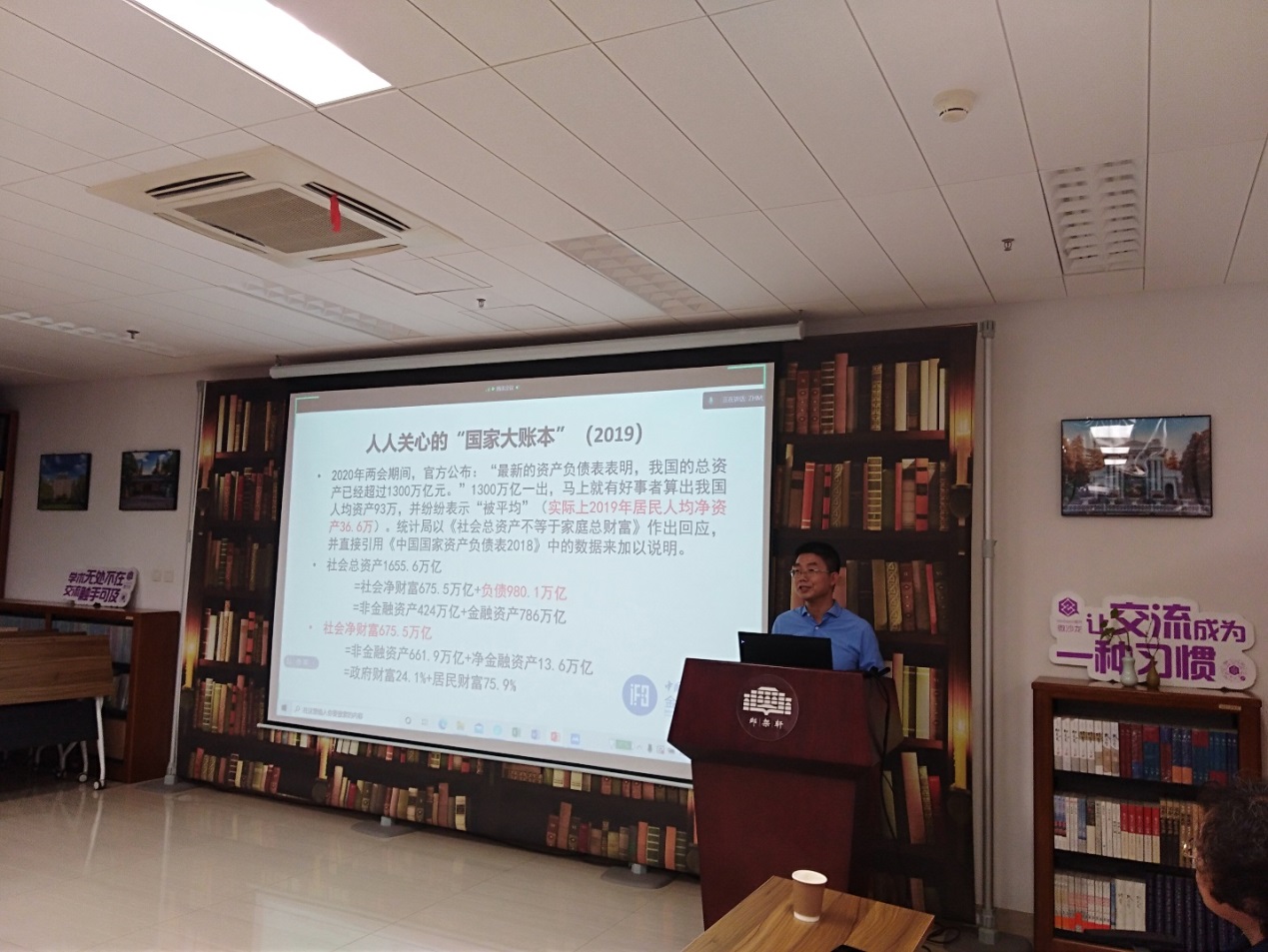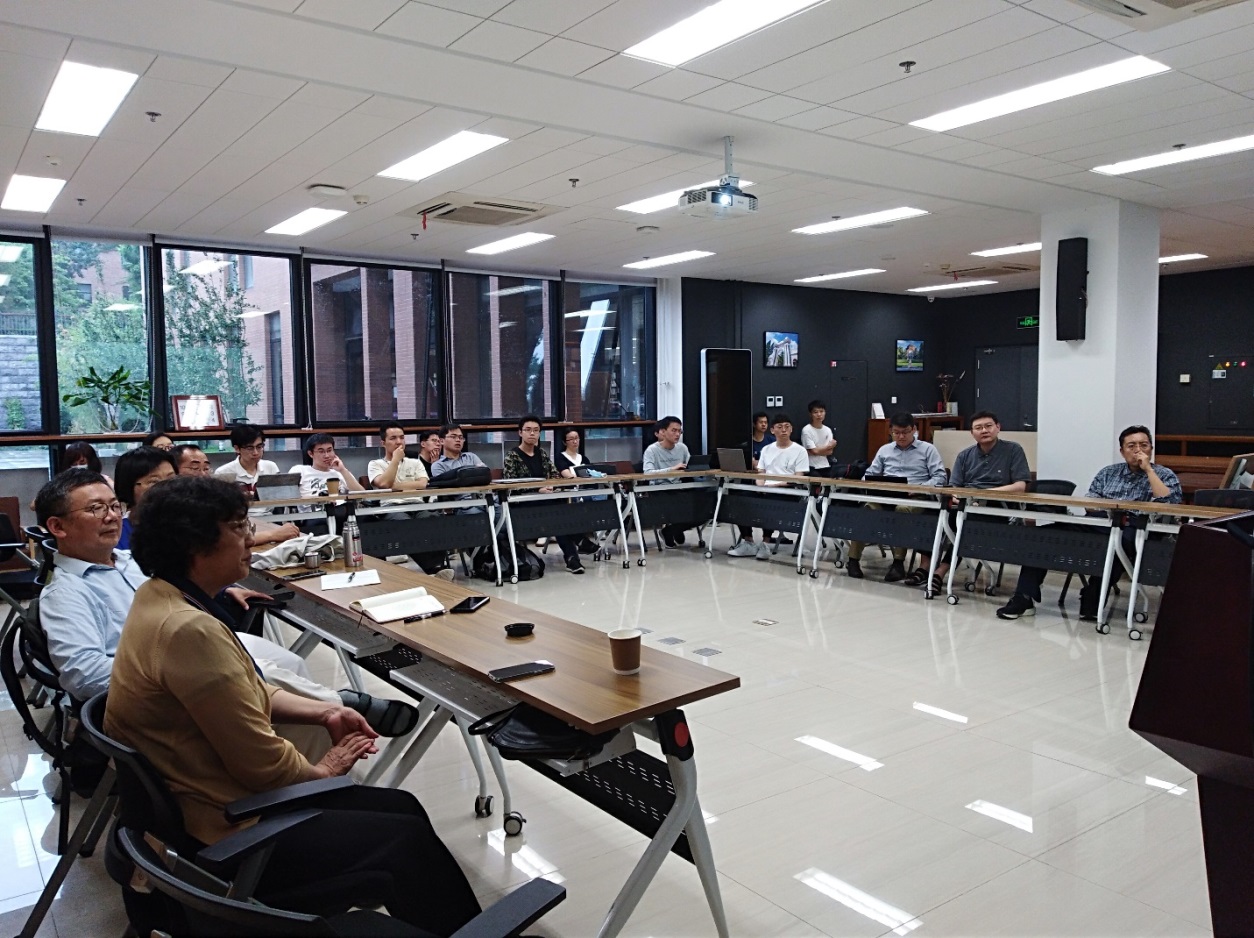On the afternoon of June 10, Prof. Zhang Xiaojing, a research fellow, was invited to the “Chen Daisun Theoretical Economics Lecture” (107th Session) and gave an academic lecture entitled “China’s Catch-up Trajectory from the National Balance Sheet” to the faculty and students of the Institute of Economics both physically and virtually. Prof. Zhang Xiaojing is Director of the Institute of Finance and Banking, Chinese Academy of Social Sciences (CASS-IFB), President of the National Institute for Finance and Development (NIFD), a member of the Chinese Economists 50 Forum (CE50) and a member of the China Finance 40 Forum (CF40). He has been selected by the state into the “National Hundred, Thousand and Ten Thousand Talents Project”, and is a recipient of special subsidies from the central government. The lecture was chaired by Prof. Gao Shujuan from the Institute of Economics, School of Social Sciences, Tsinghua University, and commented by Prof. Tang Ke, also from the Institute of Economics.

Prof. Zhang introduced to the faculty and students of the Institute of Economics of Tsinghua the “National Balance Sheet”, a major achievement made by the CASS-IFB, and pointed out that the national balance sheet was not only a system of accounts, but also an economic analysis method. The balance sheet contains far more information than GDP, providing key data support for studies on macroeconomics and international economics. At present, China’s national balance sheet developed by the CASS-IFB has been included in the CEIC Macro Economic Database and quoted by articles published in top international economic journals such as the American Economic Review and the Journal of Economic Perspectives.

On the grounds of relevant research results, Prof. Zhang and his team have completed and published China’s National Balance Sheet annual reports. In the light of the latest China’s National Balance Sheet 2020, Prof. Zhang stated that their findings show that in the 21st century, China’s economic “flow catch-up” (measured by GDP) has given way to “stock catch-up” (measured by wealth), that is, the share of China’s social net wealth in that of the USA has gradually surpassed the share of China’s GDP in that of the USA; the significant increase in the size of China’s wealth fully demonstrates the great achievements of reform and opening-up. However, Prof. Zhang also stressed that the comparison of wealth between China and the USA should not be over-interpreted. First of all, the two countries adopt different statistical calibers; secondly, wealth metrics are diversified, and differences in wealth quality, liquidity and cashability should be further considered; finally, China’s wealth accumulation should be viewed dynamically. Prof. Zhang further emphasized that from the perspective of resource allocation efficiency and future development potential, China’s wealth indicators are far less optimistic than the aggregate indicators suggest. When it came to solutions, he opined that China should attach importance to optimal allocation of stock assets, promote stock reform and introduce more market mechanisms and market-based means; in terms of the state-owned economy, China should perfect the exit mechanism, optimize the layout of state-owned capital, and solve the problem of “zombie enterprises”.
In the part of interactions, Professors Gao Shujuan and Long Denggao, and Associate Professors Zhao Zhun and Xie Danxia had in-depth discussions with Prof. Zhang with respect to the content of the report; students present at the lecture online and offline actively raised questions, to which Prof. Zhang gave detailed answers. At last, Prof. Tang Ke, Dean of the Institute of Economics, concluded the lecture with comments. Prof. Tang argued that unique and complete data was vital to a good study, spoke highly of CASS-IFB scholars’ academic spirit of “spending ten years honing a good sword”, and hoped that the faculty and students of the Institute of Economics could learn from this spirit.
Contributed by Li Jinpu